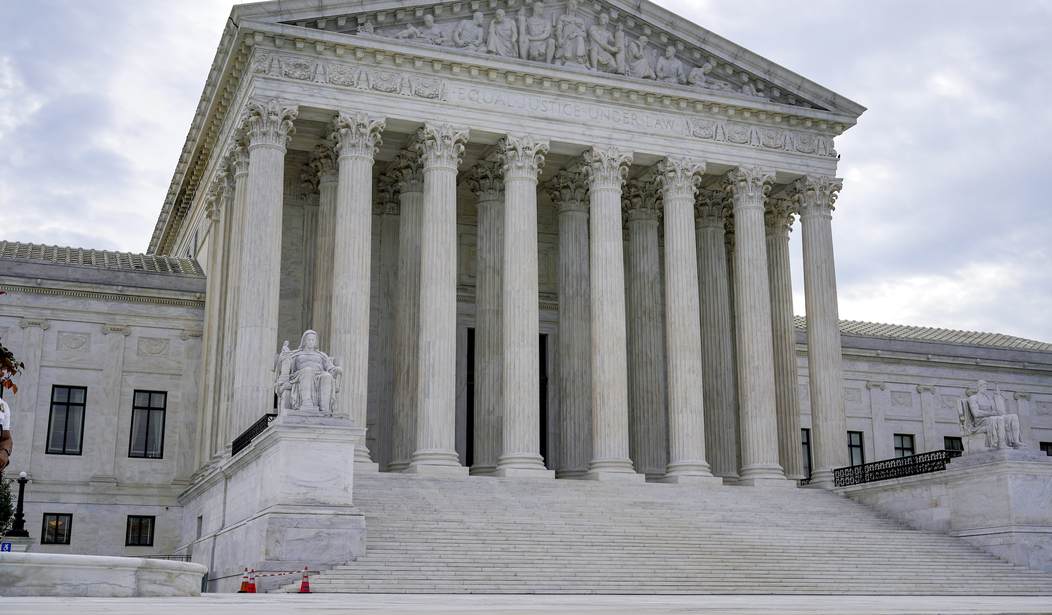Let’s establish at the outset that the Democrats’ criticism of the right’s opposition to Biden using race — blatantly and exclusively — as a determining factor in choosing a Supreme Court justice is incredibly dishonest.
They’re deliberately misrepresenting that opposition as racist. This is silly. The right is not objecting to the skin color of any potential nominee but rather the fact that Joe Biden is using race as the primary factor in choosing a replacement for Justice Breyer.
There are plenty of qualified candidates for the Supreme Court — candidates of all races and colors, and both genders. By limiting his choice to one race and one gender, Biden makes it absolutely clear that merit will play no part in his decision.
When diversity trumps all, we’re left with tokenism. Without a choice based on merit, we’re stuck with choosing someone based on the political good they can do the president and nothing else.
Joe Biden and the Democrats can choose any Supreme Court justice for any reason whatsoever. But if they’re going to choose a candidate based solely and exclusively on their race and gender rather than merit, they should proudly run their next national campaign on the fact that they want to eliminate merit as criteria for advancement in America.
Republicans should dare them to do that. Of course, the Democrats would then portray the challenge as racist because everyone knows that basing a society on merit is racist.
The brilliant John McWhorter, who happens to be black, has been calling for an end to affirmative action for many years. He writes of the cost of tokenism to black people and why it has to end.
“Diversity” has become one of those terms (and ideas) that makes us feel cozy inside, like freshly baked blueberry muffins and “A Charlie Brown Christmas.” But how would you feel about looking a Black undergraduate in the eye and saying, “A lot of the reason we wanted you here, on our campus, is your differences from most of the other students and the life lessons they can learn from them”? Someone says, “I want my kids to interact with Black students before they go out into the world.” I ask, “Just what was it about Black people that you were hoping your kids would learn?”
There are ripostes to this, of course. Some would say that we need to maintain racial preferences in admissions until we’ve eliminated inequalities between Black, Latino, Native American and white America — no differences in wealth, educational opportunities, health outcomes or access to the ballot.
McWhorter makes two counterarguments that raise uncomfortable issues for those who support tokenism.
First, where is the evidence that maintaining racial preferences in admissions, at the nation’s most selective universities, is the only, the best or even a reasonably effective way to rectify those inequalities? In individual cases, certainly, some students of color will receive, and capitalize on, opportunities that they otherwise may not have had. But the persistence of the wealth gap, after generations of affirmative action, suggests that somewhere along the way, we’ve missed the mark, policy-wise.
Second, if you’ve raised your kids amid economic adversity, you most likely will understand and even support having those circumstances taken into account in their evaluation by a university, even if you’re not part of a racial minority. But suppose that those aren’t your circumstances, that you’re middle class or above and aren’t Black, Latino or Native American. How would you feel about your kids being admitted to a university because of their “diverseness” from other kids rather than, well, their selves?
As it turns out, the whole “diversity” argument is cynical and bogus. We know this because support for diversity on the left only extends as far as the ideology of the individual who would benefit.
While Biden’s pledge to nominate a Black woman has received support from Democrats who see it as a win for diversity, over a dozen Senate Democrats previously tried to block a Black woman from the federal judiciary when she was nominated by former President Trump.
The Senate Democrats in question all voted against Ada E. Brown, former President Trump’s nominee for district judge of the northern district of Texas.
Brown, a Black woman, was confirmed in September 2019 by a vote of 80-13, with the 13 “nay” votes coming from Democratic Senators Chuck Schumer, Tammy Baldwin, Richard Blumenthal, Sherrod Brown, Maria Cantwell, Catherine Cortez Masto, Kirsten Gillibrand, Mazie Hirono, Ed Markey, Patty Murray, Brian Schatz, Debbie Stabenow and Ron Wyden.
For Our VIP Members: How Radical Will Biden’s Supreme Court Choice Be? A Short List
“All animals are equal, but some animals are more equal than others,” wrote George Orwell. As in Animal Farm, it depends on what the animals believe more than what they can do.
Welcome to Joe Biden’s America, circa 2022.










Join the conversation as a VIP Member